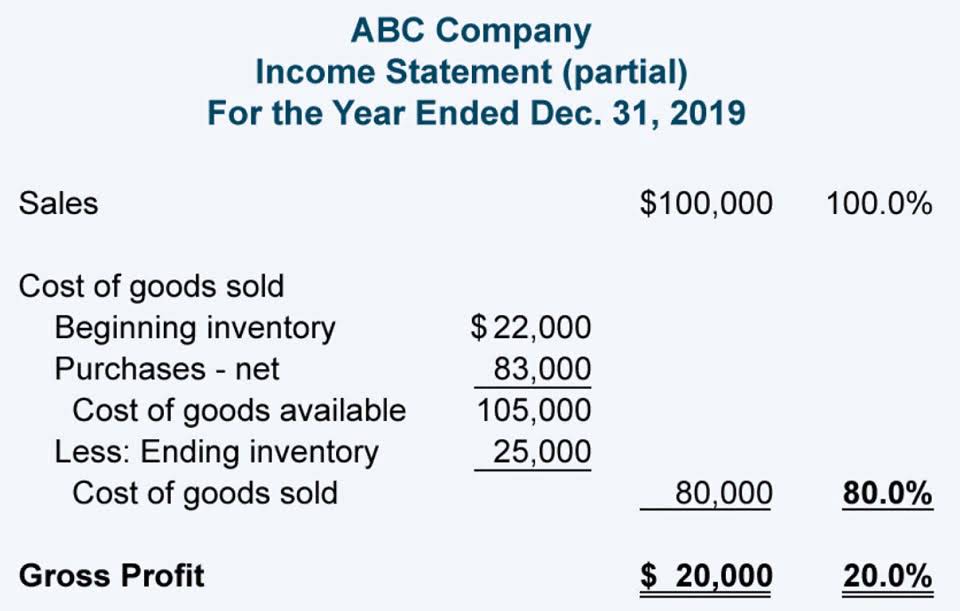
An area where many S Corp operators run into challenges is in over- or under-estimating what a “reasonable salary” is for their role. Home office deductions allow you to deduct specific home expenses from your taxes. Are you paying health insurance premiums for yourself or your family while operating your S Corp?
File payroll taxes
- Hiring an accountant might be an option for you if you want to be entirely hands-off throughout the payroll process.
- It’s important to pay attention to IRS rules and think about your regular expenses when making these decisions.
- In order to become an S corporation, the corporation must submit Form 2553, Election by a Small Business Corporation signed by all the shareholders.
- If you live in a state with income tax, you’ll likely be required to submit state-level quarterly estimated taxes there, too.
- QuickBooks gives S corps peace of mind with accurate payroll and tax penalty protection.
- Paper time sheets, spreadsheets and punch clocks are all ways to track this information.
This way, you’re able to set-up the shareholder-employee’s tax exemptions accordingly. If your S Corp has employees, you are responsible for withholding state and federal income taxes, as well as Social Security and Medicare taxes, from their wages. You may also be required to pay unemployment insurance taxes and carry workers’ compensation insurance. Next, calculate the statutory deductions, including federal and state income tax and Social Security and Medicare tax, also known as Federal Insurance Contribution Act (FICA) taxes. A portion of every employee’s paycheck goes to both FICA taxes (until the Social Security wage base is met), which you must match as the employer. You’re also required to pay federal unemployment tax (FUTA), but this is not deducted from employee wages and is solely your responsibility.

Start an LLC Online Today With ZenBusiness
If you underpay yourself, you may run into trouble in terms of an audit—especially if you pay yourself $0 in salary per year. However, if you overpay yourself, you’ll end up paying more than you need to in self-employment taxes. This plan provides you with a simple way for you to shift the deductibility of your business expenses from the employee (you) to the employer (your S Corp). This shift lets you mitigate your personal tax liability by providing you with backup and documentation in the event of an IRS audit of reimbursed expenses. With the right plan in place—and help from professionals when you need it—you can manage your S Corp payroll without running into any of these hazards. Let’s take a closer look at five missteps you’ll definitely want to avoid.
Are taxes for LLCs and S corps the same?
If you want your business to be taxed as an S corp, we recommend forming an LLC and then electing S corp taxation designation. You will file your payroll taxes using Form 941 for income and FICA taxes and the portion of payroll taxes your S Corporation paid in that period. Form 1040-ES will report your estimated taxes on income that isn’t subject to withholding. S Corporations do not have a specific tax rate because all of your S Corp’s income is pass-through income that comes through on the owner’s—your—personal tax return. Your tax rates will be subject to all taxes based on your tax bracket and filing status. When you’re operating as an S Corp, you will receive a salary from the corporation.
Set Up Employer Accounts
When doing business as an S Corp, your compensation is split between a regular paycheck and owner distributions. Payroll is subject to self-employment taxes, which is 15.3% made up of social security and medicare taxes. One of the main benefits of partnering with a payroll service provider is that it gives you more time to focus on your small business operations instead of burdensome administrative tasks. It can also save you money because you’ll be less likely to make miscalculations or miss tax filing deadlines, which can result in expensive penalties.
The newspapers must be designated by the county clerk in the county where the corporation’s office is located. The notice must be published for six consecutive weeks, and upon completion, you will receive an Affidavit of Publication from each newspaper. Once you’ve recorded the payroll information in QuickBooks Online Payroll, entering https://www.bookstime.com/ additional transactions in the program is not an option. To keep your taxes and forms straight, I recommend contacting our Payroll Support Team for help in performing the payroll correction. For more information on taxes, forms, filings, payroll and other Year End activities, make sure to check out our Year End Resources page.

Step 3 – Process your payroll
While corporations and LLCs are both types of legal entities, an S-corp is a tax status (or tax designation) with certain added advantages and restrictions. S corp business owners are required to pay themselves “reasonable compensation” for their contribution to the business. In other words, business owners must pay themselves whatever salary they’d pay anyone else to do their job—also called the market salary. As shareowners, S corp s corp payroll owners also take distributions, which are paid after all expenses (including their W-2 salary) have been paid. With an LLC, all company profits pass through to the owners’ personal tax returns, and the owners must pay personal income tax and self-employment tax on the entire amount. To form an S corp, you’ll need to ensure your company has a formal business structure (LLC or corporation), and then you can elect S corp tax designation.

When all the pre-tax and post-tax deductions are subtracted from an employee’s gross pay, you’re left with net pay or take home pay. You have several options to distribute net pay, as long as you adhere to the various federal and state laws that govern wage payments. If you offer your employees qualified health benefits, 401(k) retirement plans or group-term life insurance, this is when you’ll withhold those contributions. Many small businesses begin doing payroll on their own and if you only have a handful of employees, this may be a cost-effective option.

Does an S Corp Align With Your Business’s Growth Strategy?
As an S corp owner and employee, you must pay FUTA taxes for yourself, based on the IRS’s compensation laws for your business structure. The IRS determines the amount you owe based on your wages, which excludes other sources of S corp income, like distributions or dividends. S Corps in New York enjoy a unique tax structure due to their pass-through status, so the corporation itself is generally not subject to federal income tax.
Before registering your S Corp in New York, you can check the Department of State’s website to see if the name is available and not already in use by another business. It must include a corporate designator, such as “Incorporated,” “Corporation,” “Limited,” or an abbreviation of one. New York provides several advantages for S Corps, including a lower tax rate and some tax exemptions. In my situation, the company pays 100% of the insurance premium and it is in the Box 14 of the W-2. Mistakes in your business paperwork or tax filings can lead to costly problems. If you don’t maintain your business finances separate from your personal finances, for example, you could lose out on the legal protections provided by an LLC or S Corp.
TAGS:





























